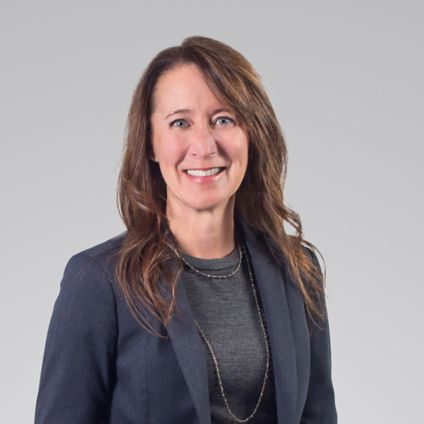The best time to start was yesterday. The next best time is now.
That saying rings especially true in estate planning, since being prepared helps people avoid stressful and costly predicaments at an already emotionally fraught time. As advisors, we’ve found ourselves sitting across from grieving clients who, on top of dealing with the death of a loved one, face financial uncertainty because of gaps in estate planning or are dealing with a family rift over misunderstandings about end-of-life care.
“I made all of the appointments—dentist, doctor, accountants,” a widow in an unforeseen family conflict might lament. “If I had just made an appointment at the lawyer’s office, we wouldn’t be in this situation.”
It's understandable and we empathize. Who wants to think about who will pay the bills if you develop dementia? Or whether you’d like to be removed from life support if you’re in a vegetative state? Or who will make medical decisions for you if you have a stroke and can’t speak? Or if you’d be better off in a nursing home than your own home?
These are uncomfortable what-ifs and worst-case scenarios, but planning for them is just as crucial as discussing who gets what from your estate. It’s natural for people to think they will always be in control of their lives and affairs, but what happens when life takes an unexpected turn? Who’s in control for you when you have no control?
Whether you have been mulling the tough and tender questions or putting them off, now is the time to decide who will have the power to act on your behalf, both in life and in death.
The people in your corner
There are three key roles involved in carrying out your wishes: a power of attorney, a health care directive and an executor. A power of attorney is a legal document that appoints someone to manage your financial affairs in the event you become mentally or physically incapable. In other words, it’s a plan that protects you when you’re alive but can’t make decisions.
It may be advisable to appoint two attorneys: one for business affairs and one for your personal financial decisions—everything from paying bills, including taxes, to managing investments. Your attorney for business will ensure your business continues to operate and that employees and customers aren’t impacted.
It’s also important to think about who your healthcare advocate will be if you cannot advocate for yourself in our current health care system. It’s critical that you have someone to deal with personal and healthcare decisions, sometimes called a personal or health care directive (the names and form of these documents vary by province or territory)—and, in order for you to get the best care possible and to ensure that your wishes are followed, that person should be both strong and bold.
An executor, meanwhile, deals with your estate after you pass away, based on the instructions detailed in your will. Some of their tasks include collecting information about assets, paying estate fees and taxes, and distributing assets to beneficiaries. It’s also important to think about who the best person is to manage your business affairs after you die so that the corporation’s value is maintained for your beneficiaries
[Related: Zachary Lisak: "Why you need a last will and testament"]
Who should you entrust in these roles? Typically, they are filled by a spouse, adult child, relative or close friend. Just as you might hire someone for a job, you should choose based on skill level and capabilities. For example, someone who is business savvy would be fitting for the power of attorney role on the financial side, while someone who has caregiving skills, time to visit you if you’re in the hospital, and who lives close by in case of an emergency would be a good fit for healthcare decisions. You’ll have to be comfortable discussing your end-of-life wishes with this person, and make sure they understand the decisions they may need to make on your behalf.
For executors, it’s best to appoint a person of action so the estate doesn’t linger and beneficiaries can be paid out expeditiously. Ideally, this person will be nimble, will know the right questions to ask, will seek advice from professionals, and will get matters done quickly.
The whole family picture
When you are ready to put pen to paper, we encourage you to remember that an estate plan for family wealth is not about one person’s will and wishes. As we often say, you can’t do estate planning at the top of the house; you need to cover every room. Ultimately, an estate plan is a family plan, and everyone should prepare, not just the patriarch or matriarch.
Meanwhile, beyond the (very much needed) technical aspects of your estate plan, advisors can work with your family, ask the hard questions, help you get comfortable with these topics, and achieve alignment. It’s not about ticking boxes but getting to the heart and humanity of the matter.
We can’t stress this enough: Don’t wait for a crisis. Do it when the waters are calm. You don’t want to be drafting a will at the hospital bed, or have your loved ones not know what to do in a medical emergency. At that point, decisions are even more difficult to make, and there’s more stress in an already stressful situation.
The best time to face the what-ifs was yesterday. The next best time is now.
Multilingual post
This post is also available in the following languages
Stay up to date with what matters to you
Gain access to personalized content based on your interests by signing up today



